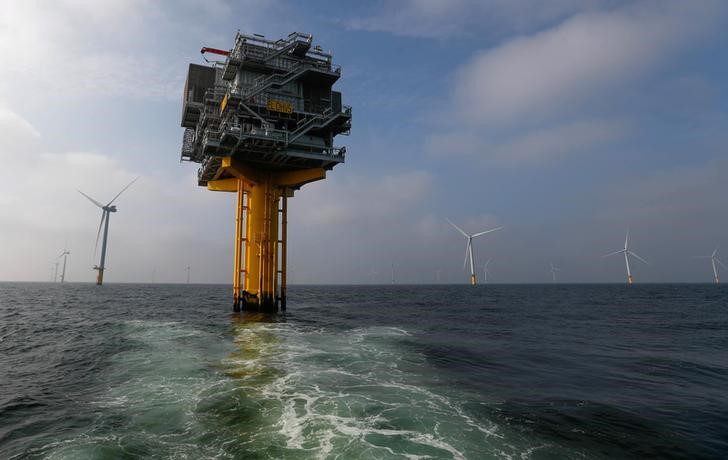By Clara Denina , Toby Sterling and Dasha Afanasieva
LONDON/AMSTERDAM (Reuters) - The owners of Dutch energy firm Eneco oppose a stock market listing and instead want to pursue a private sale of the company to another industry player in coming months, according to two banking sources close to the matter.
Eneco's shareholders, 53 municipal governments, voted in October to privatise the company. They have not said whether they favoured an IPO of part of the firm or an outright sale that would allow them to completely exit a business which was forced to split off its lucrative grid operations last year.
The sources, who estimated Eneco [ENECO.UL] was worth up to 4 billion euros (3.54 billion pounds), said the owners had decided on the latter option and wanted the sale process to be launched by the summer.
An Eneco spokesman declined to comment on whether a decision had been made on how the company should be privatised, saying the firm's management and shareholders were currently in mediation to resolve differences.
The company, heavily invested in sustainable energy projects, is attracting the interest of oil majors at a time when they are keen to switch to greener energy to meet government climate change goals and satisfy calls from investors to reduce their carbon footprints, said the sources.
French oil and gas company Total SA (PA:TOTF) is considering to make an offer, said the sources. Other interested parties include French utility Engie (PA:ENGIE), Italy's Enel (MI:ENEI) and Austrian energy group Verbund (VI:VERB), they added.
Reuters reported on Jan. 16 that Royal Dutch Shell (L:RDSa) could be interested should Eneco decide on a trade sale. The two sources said the Anglo-Dutch oil major was looking to team up with local pension funds to bolster its firepower.
Total, Shell, Engie and Verbund declined to comment.
Enel referred to comments CEO Francesco Starace made at the end of January when he said at a Reuters Breakingviews event that if Eneco decides on a trade sale "we will take a look".
STRAINED TIES
Eneco, which generates about half its electricity from renewable sources, is the last major power generator owned by Dutch cities. Two others, Essent and Nuon, were sold to RWE and Vattenfall in the late 2000s, as they were seen as too small to compete effectively against larger players after the Dutch government ordered grid and generation companies to be split in 2006.
Eneco resisted that decision for more than a decade but after losing all legal appeals finally split off its grid activities early last year.
The company reported a 42 percent drop in net profit to 96 million euros in the first half of 2017 on account of the loss of its grid operations. Profit from continuing operations rose by 25 percent, mostly due to the impact of acquisitions.
The method by which Eneco will be privatised has strained ties between the company's management and the 53 municipalities including Rotterdam, which has a 37 percent stake.
Management has called for the company to seek a flotation or partial sale while shareholders had wanted to keep all options open, including an outright sale. The municipalities last month called for the appointment of a mediator to try to resolve their differences with the supervisory board.
The Eneco spokesman confirmed management had entered private mediation with shareholders but declined to give details.
"There is nothing to report at this stage, and we shall not say anything, nor give any outlook," for when the process may conclude, the spokesman said.
The Eneco Shareholders' Commission, which represents the company's shareholders, was not available to comment.
The company's management is being advised by Dutch bank ABN Amro (AS:ABNd), while ING Bank advises the supervisory board and boutique investment firm Aperghis the shareholders. The advisers all declined to comment.
